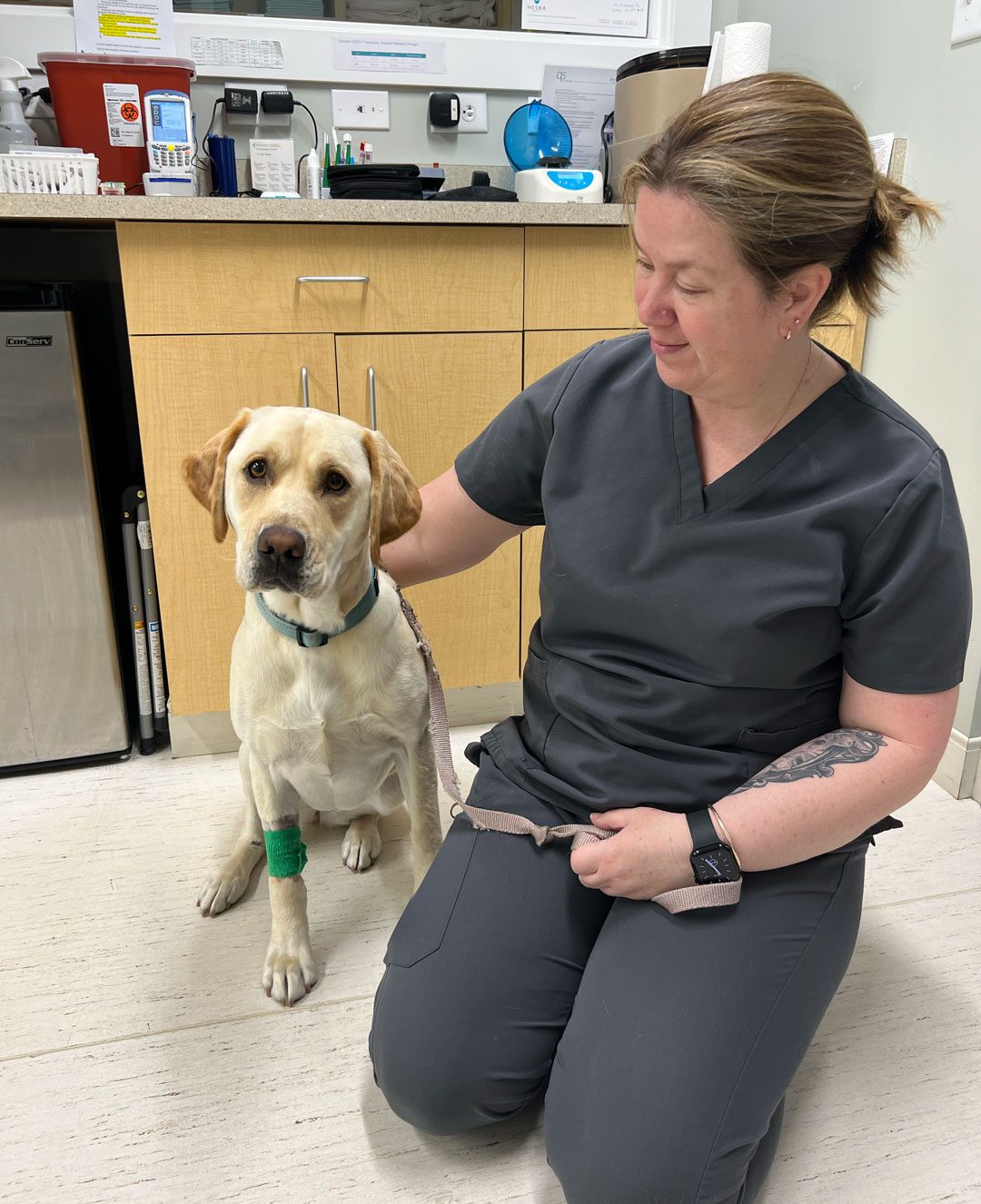Frequently Asked Questions
We know how overwhelming it can be when your pet isn’t feeling well. Whether you're facing an emergency, seeking urgent care, or just wondering what to expect, this page is here to guide you. Below, you’ll find answers to some of the most common questions we receive. If you don’t see what you’re looking for, give us a call.

General Questions

We don’t schedule appointments for emergency or urgent care visits. Patients are seen in order of medical urgency. Calling ahead is encouraged so our team can prepare for your arrival and better assess your pet’s needs as soon as you walk in the door.
Yes. Your family veterinarian manages your pet’s routine and long-term care. We work closely with them by sharing records and updates to ensure a smooth transition after your visit, so they’re fully informed and ready to continue care.
Each emergency begins with a physical exam by a veterinarian. Based on their findings, we’ll recommend any necessary diagnostics and treatments, and provide a clear, itemized estimate for your approval before moving forward.
Yes, we offer flexible financing through VetBilling, Scratch Pay, and CareCredit.
Our emergency services are for dogs and cats only. However, we do offer euthanasia services for small exotics and birds. If needed, we’re happy to refer you to local clinics that specialize in exotic pet care.
Wait times depend on the number of patients and the urgency of their conditions. Pets in critical condition are always prioritized. Mornings and early afternoons on weekdays tend to be quieter. Nights and weekends are typically busier, especially since we’re the only 24/7 emergency hospital serving much of northern Michigan and parts of Canada.
Please contact your local Department of Natural Resources (DNR) office for guidance on handling injured or ill wildlife, including seagulls, waterfowl, and other native species.
We’re happy to scan stray animals for a microchip. If the animal is injured or in distress, we will provide medical care. For healthy strays, we are unable to provide shelter or hold them long-term. Contact local shelters or animal control for next steps.
We do not provide routine vaccinations. We’d be happy to recommend a trusted general practice veterinarian, such as our sister hospital, East Bay Pet Hospital, in your area for ongoing preventive care.
Emergency Services
Immediate care is needed if your pet is experiencing:
- Difficulty breathing or no pulse
- Seizures (multiple or prolonged)
- Unconsciousness
- Straining to urinate or not urinating (especially male cats)
- Ongoing pain or collapse
- Labor complications (more than 4 hours without a puppy or kitten)
- Object stuck in the throat
We frequently treat:
- Vomiting or diarrhea
- Lethargy or weakness
- Coughing or open-mouth breathing (especially in cats)
- Swollen abdomen or abnormal vocalizing
- Sudden blindness or irritated eyes
- Blood in urine or inappropriate urination
- Small wounds or bite injuries
Upon arrival, our trained team will perform a quick assessment and check vital signs. Pets showing signs of critical illness (such as pale gums, trouble breathing, weakness, or seizures) are taken to our treatment area immediately for evaluation by a veterinarian.
Stable patients will be brought into an exam room for a more in-depth history and exam. After the exam, we’ll provide recommendations for tests or treatments, along with an estimate for your approval.
Our in-house diagnostics, including x-rays, bloodwork, and ultrasound, deliver fast results, usually within the hour. Pets needing further care or surgery may be hospitalized overnight with continuous monitoring.
Yes. All of our emergency veterinarians are skilled in a range of urgent surgical procedures. Some conditions may allow time for preparation, while others require immediate intervention.
Common procedures include:
- Removal of ingested foreign objects
- Repairing wounds, lacerations, and bite injuries
- Gastric torsion (bloat) correction
- Splenectomy
- Pyometra treatment
- Cesarean sections
- Bladder stone removal
Hospitalization & Monitoring
Always. Our veterinary staff is onsite 24/7, continuously monitoring hospitalized pets. Treatments include IV fluids, oxygen therapy, pain relief, and follow-up testing.
We go the extra mile to ensure comfort by providing soft fleece blankets, hiding boxes for cats, and even warm deli chicken for pets not ready to eat their regular meals.
Yes, especially for pets staying more than one night. Visits are arranged in advance to avoid interruptions to care and treatment schedules.
Yes. Our Patient Care Veterinarian will contact you in the morning to review your pet’s overnight progress and discuss next steps, including plans for discharge if appropriate.